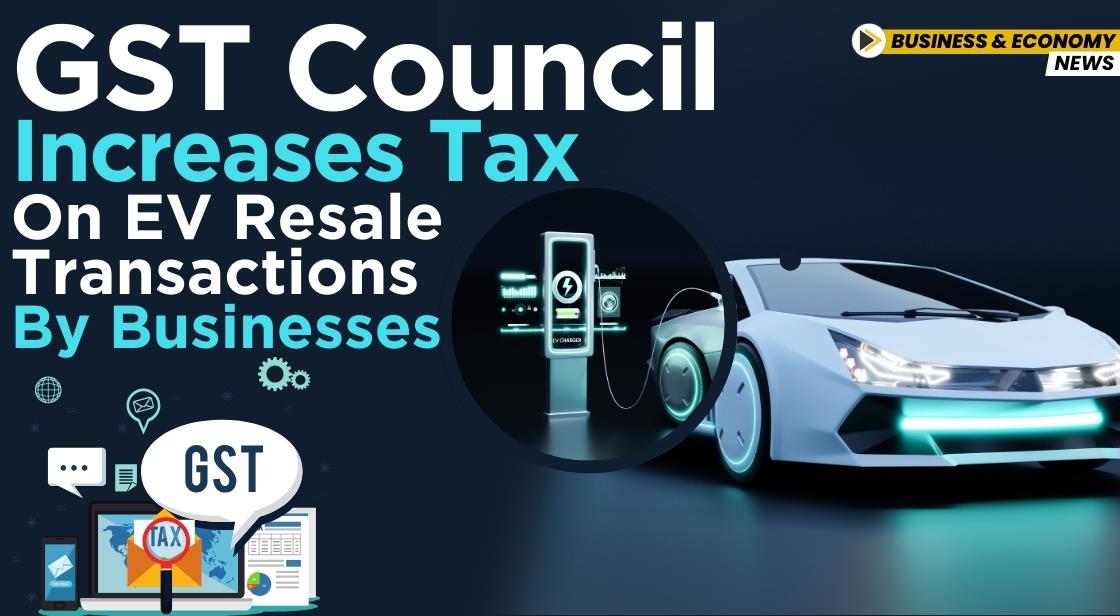GST Council Increases Tax on EV Resale Transactions by Businesses

News Synopsis
On Saturday, December 21, Finance Minister (FM) Nirmala Sitharaman clarified key updates regarding the Goods and Services Tax (GST) on electric vehicles (EVs). Speaking to the media after the 55th GST Council meeting in Jaisalmer, Rajasthan, she provided important details on the tax structure for new and used EVs.
GST on New Electric Vehicles Remains at 5%
FM Sitharaman confirmed that new electric vehicles will continue to attract a 5% GST rate, which aligns with the government's long-standing push to promote the adoption of EVs. This move aims to encourage the transition to electric mobility by keeping taxes on new EVs affordable for consumers.
GST Exemption on Used EVs Sold Between Individuals
The FM also clarified that the sale of used electric vehicles between individuals will remain exempt from GST. This decision aims to keep transactions involving second-hand EVs straightforward and cost-effective, providing an opportunity for consumers to access affordable, pre-owned electric vehicles without the added financial burden of a tax.
18% GST on Used EVs Bought by Companies and Modified EVs
In a significant shift, FM Sitharaman announced that old electric vehicles bought by companies (or those modified by sellers) and then resold will be taxed at 18%. The GST will be applied to the margin value—the difference between the purchase price and the selling price. This change primarily targets the resale market, where businesses are involved in the trade of pre-owned EVs.
Existing GST Structure for New and Old EVs
Currently, new electric vehicles are taxed at 5% GST, while older, used EVs are subject to a 12% GST rate. This adjustment in the tax rate on used EVs is part of the government’s evolving strategy to regulate the resale market and ensure businesses that deal with second-hand EVs contribute to tax revenue.
GST Council’s Thorough Deliberation on Tax Rates
FM Sitharaman emphasized that the decision to impose 18% GST on used EVs was not made arbitrarily. The decision followed thorough discussions among the members of the GST Council. The move reflects the Council's efforts to balance the interests of consumers, businesses, and the environment while ensuring the tax system remains effective and fair.
Food Delivery Platforms' Tax Rate Decision Deferred
In another significant development, the GST Council deferred its decision on reviewing the tax rates for food delivery platforms like Swiggy and Zomato. Reports had suggested that the fitment panel was considering lowering the tax on food delivery services from 18% to 5%. However, no conclusion was reached during the meeting, and the matter has been postponed for further review.
The GST Council deliberated on whether the tax should apply to the delivery service itself or the food being delivered. Despite detailed discussions, no final decision was made, leading to a delay in the proposed change.
Clarification on GST for Payment Aggregators
In addition to the updates on EV taxation, the GST Council provided clarity on the treatment of payment aggregators. Transactions processed by payment aggregators worth less than INR 2,000 will be exempt from GST. However, this exemption does not extend to payment gateways or fintech services that do not settle funds.
This decision is part of the ongoing efforts by the Council to regulate the digital payment ecosystem. Earlier reports had suggested the possibility of imposing an 18% GST on small-value digital transactions processed by payment aggregators.
Delay in Health Insurance Reforms Discussion
Lastly, the GST Council also deferred discussions on health insurance reforms, awaiting inputs from the Insurance Regulatory and Development Authority of India (IRDAI). This delay reflects the need for further consultations to ensure that proposed reforms are in line with industry standards and consumer interests.
Conclusion: Ongoing Developments in GST Council Decisions
The latest GST Council meeting has resulted in significant tax updates, particularly regarding electric vehicles and payment aggregators. While the changes regarding GST on used EVs reflect the government's evolving approach to the electric vehicle market, the deferral of decisions on food delivery platforms and health insurance reforms suggests that further discussions are required. The GST Council’s careful deliberations indicate its intent to balance the needs of businesses, consumers, and the economy in general.
You May Like









